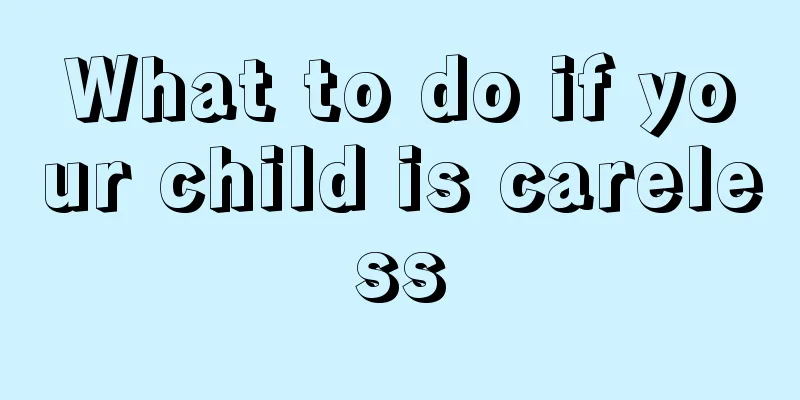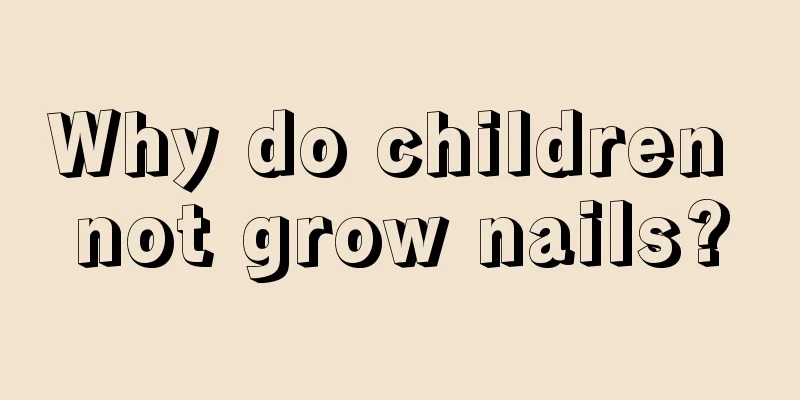Why does a newborn spit bubbles?

|
Newborn drooling, known as drooling in written language, is mostly a normal physiological phenomenon. However, many parents are always worried that their children may have one condition or another. Below we will give a detailed explanation of the bubbles in the mouth of newborns, hoping to solve the confusion of parents. The regulation of saliva secretion relies on two aspects: local stimulation in the oral cavity and the reflex of the nerve center. Newborns produce very little saliva because their central nervous system and salivary glands are not yet fully developed. By March, saliva secretion gradually increases, and some babies have a stronger secretion ability and will drool. When the baby is 6 to 7 months old, the baby's deciduous teeth erupt, which stimulates the trigeminal nerve and increases saliva secretion. In addition, the child's oral cavity has a small capacity and cannot swallow or regulate the saliva in the mouth, so the saliva will flow out naturally after accumulation. Saliva secretion is also controlled by nerves. Young children may drool frequently because their brain development is not yet complete, and their ability to inhibit saliva secretion and swallowing function are slightly poor. After the age of one, as the brain develops fully, drooling occurs less frequently. When children are 2-3 years old, their swallowing function and central nervous system are further improved and they will stop drooling. If a child continues to drool when he grows up, it may be pathological drooling rather than physiological. This may be caused by poor neurological or endocrine development, inflammation in the oral cavity, and indigestion, and must be diagnosed and treated. For example: when the oral mucosa is inflamed, it stimulates the secretion of the salivary glands and increases saliva production. Some saliva also contains yellow or light red mucus and has a bad odor. At this time, you should go to the dental department for diagnosis and treatment. When children have a cold or have difficulty breathing, they often breathe through their mouths, which can also cause drooling. Some children may also drool due to incomplete intellectual development of the brain or endocrine system diseases. In this case, they should see a pediatrician. After the baby is 6 months old, small pieces of rock sugar can be put into the baby's mouth to help him gradually develop the habit of swallowing saliva. Feed properly and eat more fresh vegetables and fruits to enhance disease resistance. Change the bad habits of kissing hard and pinching children's cheeks. For children who drool, special attention should be paid to personal hygiene: the saliva should be wiped off with a clean, soft handkerchief or tissue. Collars and lapels should be changed and washed frequently. To protect the skin of the chin and chest, you can put a clean gauze under it or use a bib. If the skin around the lips, jaw and neck is flushed, eroded or even peeling, you should wash the area frequently with warm water and then apply a small amount of ointment or oil. B. Saliva is produced by three pairs of large salivary glands and parotid glands in the oral mucosa. Secreted by the submandibular gland and numerous minor salivary glands. Saliva contains a variety of digestive enzymes that help digest food and neutralize the acids produced by bacteria in the mouth. If there is a lack of saliva, diseases such as mouth ulcers and tooth decay are likely to occur. A normal adult secretes about 1000 to 1500 ml of saliva per day. Such a large amount of saliva is almost all swallowed unconsciously, so no saliva will flow out and oral hygiene can be maintained. The salivary glands of newborns are not very developed and they secrete less saliva. After 5 months, the saliva secretion of children begins to increase. Because the floor of the baby's mouth is shallow and they cannot control the saliva in their mouth, and their swallowing function is poor, saliva often flows out of their mouth; when the baby changes from a lying position to a sitting or standing position, saliva is also easy to flow out; in addition, after the baby is 5 to 6 months old, the stimulation of the trigeminal nerve when teeth begin to erupt, or the stimulation of food can make saliva flow out of the mouth easily. These are all physiological. As the child grows up, these phenomena will gradually disappear. Generally, no treatment is required. Do not seek medical treatment indiscriminately. However, if your child seldom drools and suddenly drools more, you should go to the hospital for examination and treatment. C. It takes time for a baby to drool. Newborn babies do not drool because their salivary glands are underdeveloped and secrete less saliva, so there is no excess saliva flowing out of their mouths. In addition, the baby's staple food at this time is milk or liquid food, which does not stimulate the salivary glands much. The teething period is the time when babies drool most frequently. When the deciduous teeth erupt, the small teeth push outward from the gums, causing mild swelling and discomfort in the gum tissue, stimulating the nerves on the gums, and causing the salivary glands to reflexively increase saliva secretion. As the baby grows and develops, children who develop faster will stop drooling when they are one and a half years old, and most children will gradually and effectively control their swallowing movements before the age of two as their muscle motor functions mature. Therefore, it is normal for babies to drool. However, since saliva is acidic and contains digestive enzymes and other substances, they will not invade deeper layers because of the protection of the mucous membrane in the mouth. However, when saliva flows onto the skin, it can easily corrode the outermost stratum corneum of the skin, causing skin inflammation and triggering pediatric skin diseases such as eczema. So when your baby drools, you should pay attention to the following points: 1. Wipe off his saliva at any time. Do not use force when wiping. Just wipe the saliva gently to avoid damaging the local skin. 2. Use warm water frequently to wash away the saliva, and then apply oil to protect the skin of the chin and neck. It is best to put a bib on your child to prevent saliva from staining his clothes. 3. The handkerchief used to wipe the baby's saliva should be soft and made of cotton, and should be washed and ironed frequently. 4. If the baby drools severely, you should go to the hospital for a check-up to see if there are any abnormal symptoms in the baby's mouth, whether the swallowing function is normal, etc. In addition, when a child sleeps on his stomach, drooling will not have any impact on him. The pillow just needs to be washed and dried frequently to prevent bacteria from breeding inside. The above is a detailed explanation of the bubbles made by the newborn's saliva. In the growth process of a child, when he develops to a certain stage, he will grow teeth and spit bubbles. This is a very normal phenomenon. Parents don’t need to worry about it. I hope the above information can help all parents. |
<<: What is the reason for the black base of the newborn's nails?
>>: What to do if your newborn baby spits bubbles
Recommend
What are growing pains in children?
After a child is born, the brain and various part...
What is the law of myopia growth in children?
In people's lives, many people are very troub...
What should I do if my 2-year-old baby has lung heat and cough?
Two-year-old babies are too young and have very w...
What are the clinical manifestations and treatment methods of fetal head cysts?
As the saying goes, a baby needs to develop in th...
How to treat black teeth in children?
Many children have black teeth, which seriously a...
Where to travel with children
There are several long holidays in a year. The lo...
Dangers of tooth extraction in children
Many children like to eat sweets. They eat too mu...
What are the causes of infantile colitis?
As we all know, there are certain causes for the ...
Treatment of red spots on baby's body
Many babies have red spots on their bodies. When ...
Preventive care of hydrocephalus in children
Hydrocephalus in young children is generally caus...
Four-year-old boy sweats while sleeping at night
When parents find that their children have proble...
The child is awake and coughing
Some children are prone to coughing after waking ...
Can babies drink cantaloupe juice?
Babies need a variety of nutrients during their p...
Is it serious if a child has a white blood cell count of 20?
Many family members will worry about the blood co...
How to eat bananas for six months old baby
It is generally okay for six-month-old babies to ...









